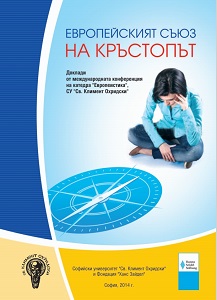Ethno-Political conflicts in the European Union’s Neighbourhood: the Cases of South Ossetia and Abkhazia
Ethno-Political conflicts in the European Union’s Neighbourhood: the Cases of South Ossetia and Abkhazia
Author(s): Laura M. Herţa
Subject(s): Politics / Political Sciences, Politics, Peace and Conflict Studies
Published by: Университет за национално и световно стопанство (УНСС)
Keywords: EU Neighbourhood; Ethno-Political Conflicts; South Caucasus; Georgia; EU; Ossetia; Abkhazia
Summary/Abstract: The article will focus on ethno-political conflicts in South Caucasus, namely on the nature and dynamic of secessionist movements and resulting breakaway republics of Abkhazia and South Ossetia. The second chief interest herein is centred on the European Union’s declared objectives towards conflicts in Georgia. Firstly, the article will briefly analyze the ethno-political strife in the South Caucasus region and the nationalist resurgence after the dissolution of the USSR and will explore the dynamic of ethno-political violence and the way in which threats and enemies were constructed. Secondly, we will survey the evolution of EU’s contractual ties with Georgia, from the loose Partnership and Cooperation Agreement to the post-2004 inclusion of Georgia in the European Neighbourhood Policy. The main theoretical claims supported throughout the entire account is that 1) social-constructivist assumptions provide a coherent understanding of secessionist movements and 2) a clear analysis on the modalities in which international organizations (i.e. the European Union) act as norm-setters and expect norm-internalization.
- Page Range: 223-234
- Page Count: 12
- Publication Year: 2014
- Language: English
- Content File-PDF

